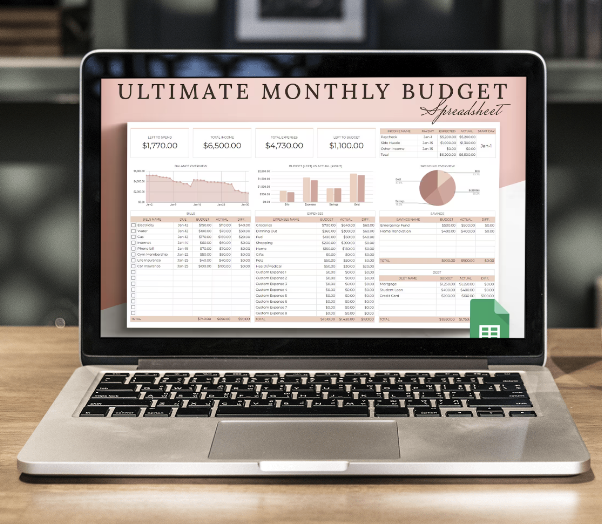In the dynamic world of personal finance, understanding and implementing the concept of financial leverage from an early age is crucial. Leverage, in its simplest form, is the use of various financial strategies to multiply the effectiveness of each dollar you earn. It’s about making your money work harder for you, rather than just working hard for your money.
Starting young provides a longer horizon for your investments and financial strategies to bear fruit. But remember, it’s never too late to start. Beginning now is always better than not starting at all. Each day offers a new opportunity to optimize your finances and grow your wealth. Let’s explore 55 creative ways to leverage every dollar to its fullest potential.
55 Ways to Leverage Your Money
- Budget with Precision: Know where every dollar goes. Use apps or spreadsheets to track your spending.
- Emergency Fund: Build an emergency fund to avoid high-interest debt during unexpected events.
- High-Interest Savings Accounts: Use high-interest savings accounts for your emergency fund and short-term savings.
- Automate Savings: Set up automatic transfers to savings accounts to ensure consistent saving.
- Retirement Accounts: Maximize contributions to your 401(k), especially if your employer matches.
- Roth IRA Investments: Consider a Roth IRA for tax-free growth and withdrawals in retirement.
- Debt Snowball Method: Pay off small debts first to build momentum, then tackle larger debts.
- Debt Avalanche Method: Pay off high-interest debts first to save on interest payments.
- Refinance High-Interest Loans: Lower your interest rates through refinancing options.
- Credit Card Rewards: Use credit cards wisely to earn cashback or travel rewards.
- Automate Bill Payments: Avoid late fees and maintain a good credit score.
- Invest in Stocks: Even small investments in the stock market can grow over time.
- Dividend Reinvestment: Reinvest dividends to compound your investment returns.
- Low-Cost Index Funds: Minimize investment fees with index funds.
- Peer-to-Peer Lending: Earn interest by lending money through P2P platforms.
- Real Estate Investments: Consider rental properties for passive income.
- REITs: Invest in Real Estate Investment Trusts if direct property investment isn’t feasible.
- Education: Invest in your education and skills to increase your earning potential.
- Side Hustles: Start a side business or freelance to generate additional income.
- Sell Unused Items: Declutter and sell items you no longer need.
- Bulk Buying: Purchase essentials in bulk to save money long-term.
- Negotiate Bills: Regularly negotiate rates for utilities and subscriptions.
- Energy Efficiency: Invest in energy-efficient appliances to save on utility bills.
- Public Transportation: Use public transport or carpool to save on commuting costs.
- Meal Planning: Reduce food waste and overspending by planning meals.
- Grow Your Own Food: Start a garden to save on fresh produce.
- Preventative Healthcare: Invest in your health to avoid costly medical bills later.
- Health Savings Account (HSA): Use an HSA for tax-free medical expense savings.
- Life Insurance: Protect your family’s financial future with adequate life insurance.
- Estate Planning: Ensure your assets are distributed according to your wishes.
- Credit Score Improvement: Work on improving your credit score for better loan rates.
- Shop Around for Insurance: Regularly compare insurance rates to ensure you’re getting the best deal.
- Use Tax-Advantaged Accounts: Maximize contributions to HSA, 529, or other tax-advantaged accounts.
- Educational 529 Plans: Save for education expenses in a tax-advantaged 529 plan.
- Charitable Giving: Strategically plan charitable donations for tax deductions.
- Cash Flow Management: Keep a close eye on your cash flow to avoid overdrafts and fees.
- Avoid Impulse Buys: Implement a waiting period for large purchases to avoid impulse buying.
- Library Resources: Utilize libraries for free access to books, movies, and courses.
- Travel Hacking: Use travel reward programs for discounted or free travel.
- DIY Projects: Learn to do simple home repairs and projects yourself.
- Wholesale Club Memberships: Join wholesale clubs for discounts on bulk purchases.
- Second-Hand Shopping: Buy clothes and goods second-hand to save money.
- Invest in Quality: Sometimes, spending more upfront for quality can save money in the long run.
- Mindful Entertainment Spending: Choose less expensive or free entertainment options.
- Group Discounts: Take advantage of group discounts for events and subscriptions.
- Seasonal Shopping: Buy items off-season for significant savings.
- Loyalty Programs: Join loyalty programs for stores you frequently shop at.
- Direct Stock Purchase Plans: Invest directly in companies to avoid brokerage fees.
- Online Courses: Upskill affordably through online courses and webinars.
- Networking: Expand your professional network for more opportunities and advice.
- Health and Fitness: Maintain a healthy lifestyle to avoid future medical expenses.
- Flexible Spending Accounts (FSA): Use FSAs for pre-tax savings on eligible expenses.
- Automate Investments: Use robo-advisors for automated, low-cost investing.
- Check for Unclaimed Money: Search for any unclaimed money in your name.
- Financial Advisor: Consult a financial advisor for personalized financial planning strategies.
In conclusion, leveraging your money is about making strategic choices and utilizing the plethora of tools available to maximize each dollar. Whether you’re just starting your financial journey or looking to optimize your current strategy, each of these 55 methods offers a pathway to greater financial health and freedom. At Black Hills Financial Planning, we believe in empowering you with knowledge and strategies that align with your unique financial goals. Remember, the journey to financial wellness is a marathon, not a sprint. Start taking small steps today, and you’ll be amazed at how far you can go.







